Botswana country profile
- Published
This page is no longer being updated. It was last updated on 11 November 2024
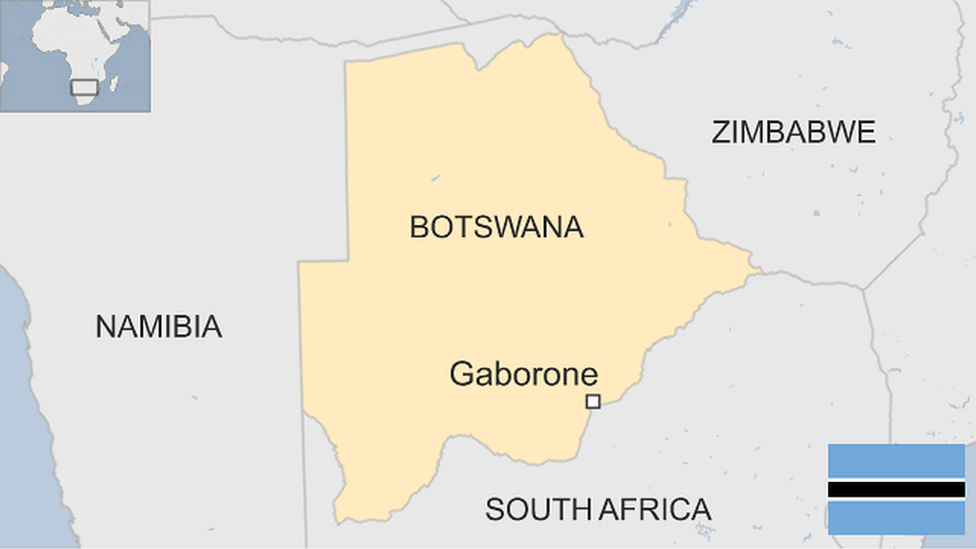
Botswana, one of Africa's most stable countries, is the continent's longest continuous multi-party democracy. It is relatively free of corruption and has a good human rights record.
Sparsely populated, Botswana protects some of Africa's largest areas of wilderness. Safari-based tourism - tightly-controlled and often upmarket - is an important source of income.
Botswana is the world's largest producer of diamonds and the trade has transformed it into a middle-income nation.
The country has had its share of problems: It once had the world's highest rate of HIV-Aids infection. The country has one of Africa's most-advanced treatment programmes, however, and medicine for the virus is readily available.
Read more country profiles, external - Profiles by BBC Monitoring, external
REPUBLIC OF BOTSWANA: FACTS
Capital: Gaborone
Area: 581,730 sq km
Population: 2.5 million
Languages: English, Setswana
Life expectancy: 66 years (men) 72 years (women)
LEADER
President: Duma Boko
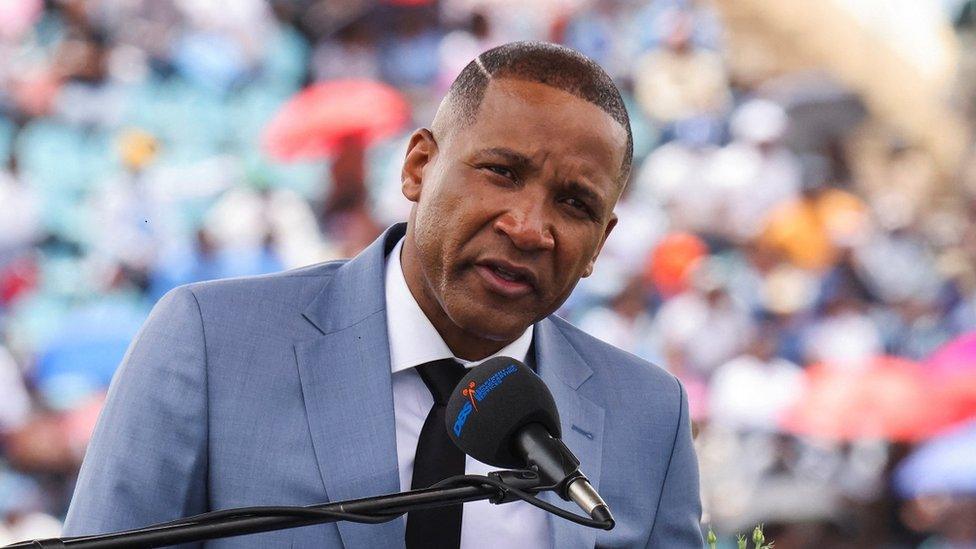
Duma Boko became president in the November 2024 elections which saw a crushing victory for his Umbrella for Democratic Change (UDC) party.
Voters rejected the long-serving governing party, the Botswana Democratic Party (BDP), which had been in power since independence in 1966.
The result marked a political earthquake in the diamond-rich southern African nation. It was the third time that Boko had run as a presidential candidate.
Despite overseeing a dramatic change in Botswana, recent poor economic growth and high unemployment had dented the BDP's popularity.
The nature of the victory came as a surprise to many, including it seemed to Boko himself, who admitted being shocked by the numbers.
"I can only pledge to [the people] that I will do my very best. Where I fail and fault, I will look to them for guidance," he said after the results were announced.
MEDIA
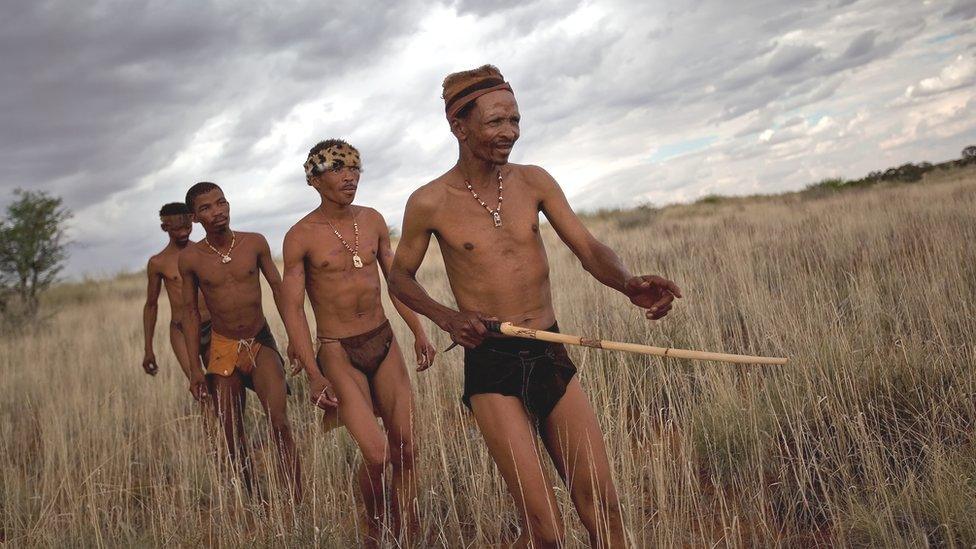
Campaign groups say the authorities are forcing the Bushmen off their ancestral lands. A dwindling band of Bushmen hunter-gatherers make the Kalahari Desert their home
Botswana has a long tradition of lively and unimpeded public debate, although opposition leaders have claimed that the government limits their ability to broadcast freely on the radio.
There is a "free and vigorous" press in cities and towns, says US-based NGO Freedom House.
State-run TV arrived with the launch of Botswana Television (BTV) in 2000. Satellite pay TV is available.
TIMELINE
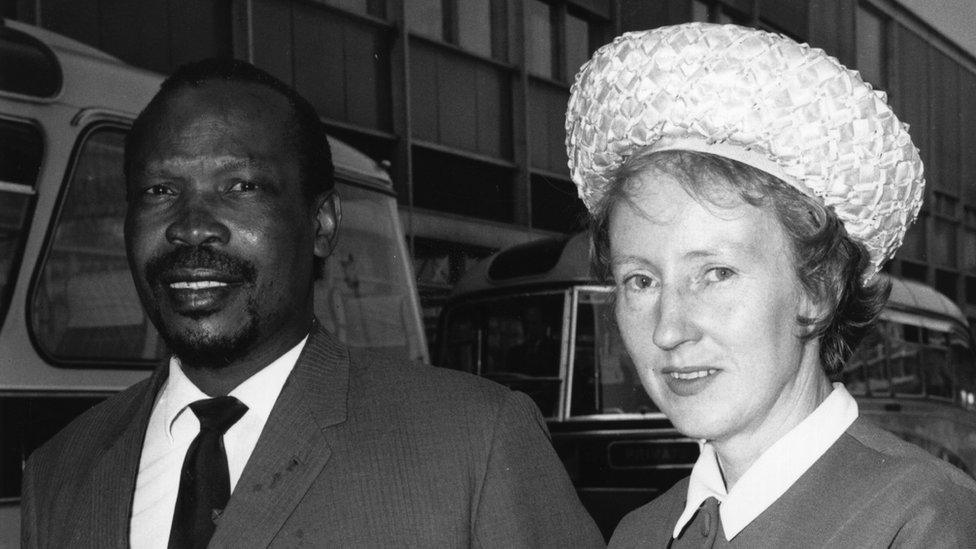
Seretse Khama, pictured with his wife Ruth, served as his country's first president until 1980
Some key dates in Botswana's history:
1867 - European gold prospectors arrive, mining begins. In 1885, British proclaim a protectorate called Bechuanaland.
1950 - Chief of the Ngwato, Seretse Khama, is deposed and exiled by the British.
1960 - Britain approves new constitution for Bechuanaland. Executive Council, Legislative Council and African Council are established. The following year, Seretse Khama is appointed to Executive Council and later founds the Bechuanaland Democratic Party (BDP), which is eventually renamed the Botswana Democratic Party. He becomes prime minister in 1965.
1966 - Bechuanaland is granted independence and becomes Republic of Botswana with Seretse Khama as president.
1967- Diamonds discovered at Orapa.
1999-2008 - Presidency of Festus Mogae - praised for diversifying Botswana's economy to reduce its dependence on diamonds.
2004 - HIV infection rate falls to 37.5%; Botswana no longer has the world's highest rate of infection.
2008 - Ian Khama, son of Seretse Khama, becomes president, serves two terms in office.
2010 - Human rights group Survival International calls for a boycott of Botswanan diamonds, accusing the government of trying to force Basarwa bushmen away from their ancestral lands.
2014 - Gay rights group wins legal recognition.
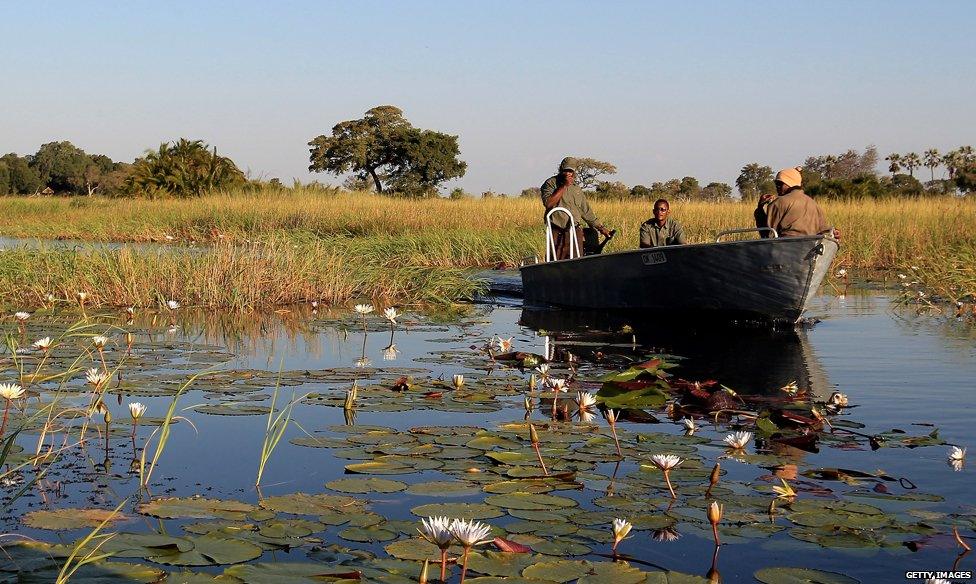
The Okavango swamps form the world's largest inland delta
- Published10 December 2024
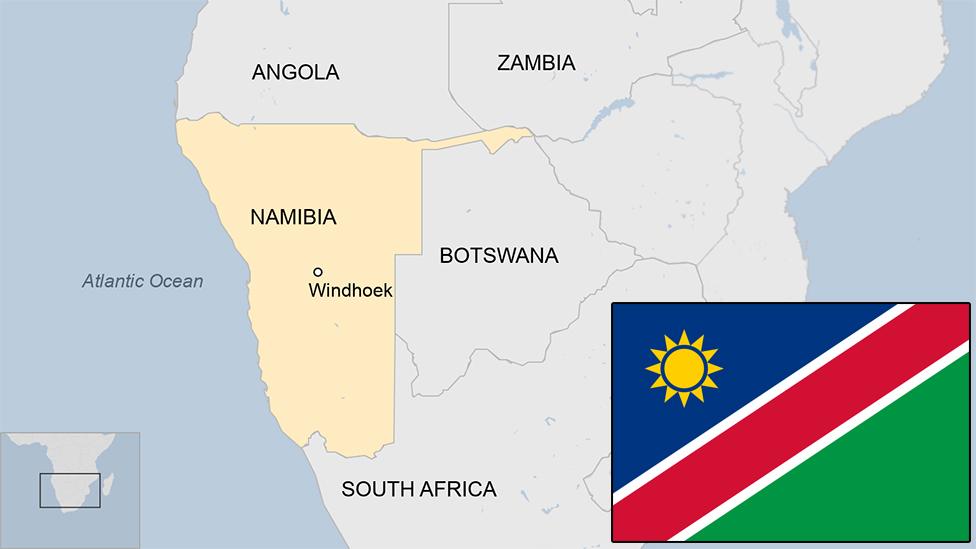
- Published21 February 2023
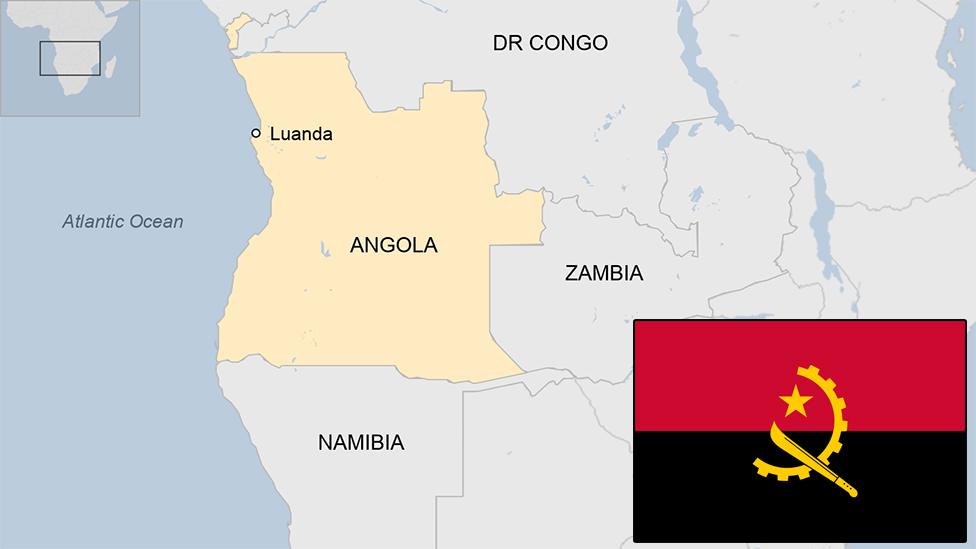
- Published24 March 2023
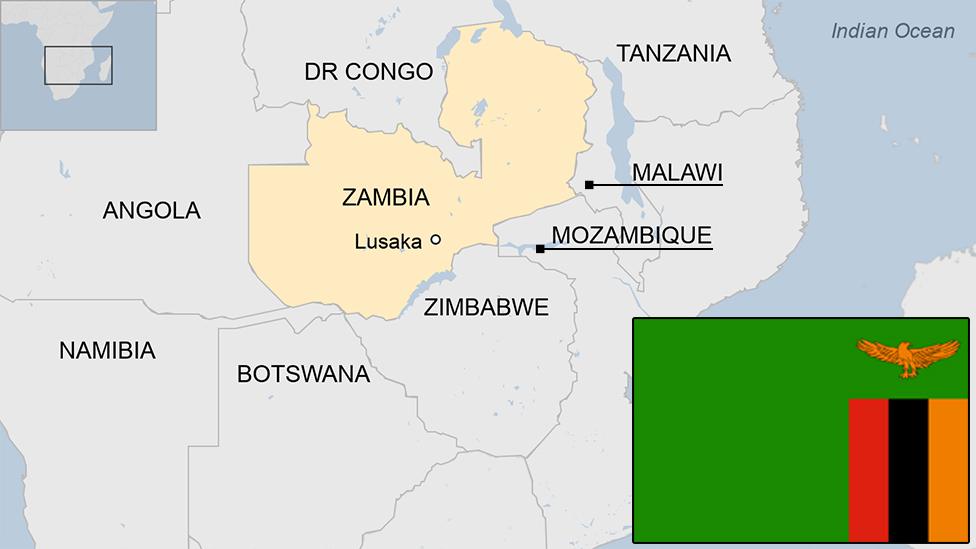
- Published30 August 2023
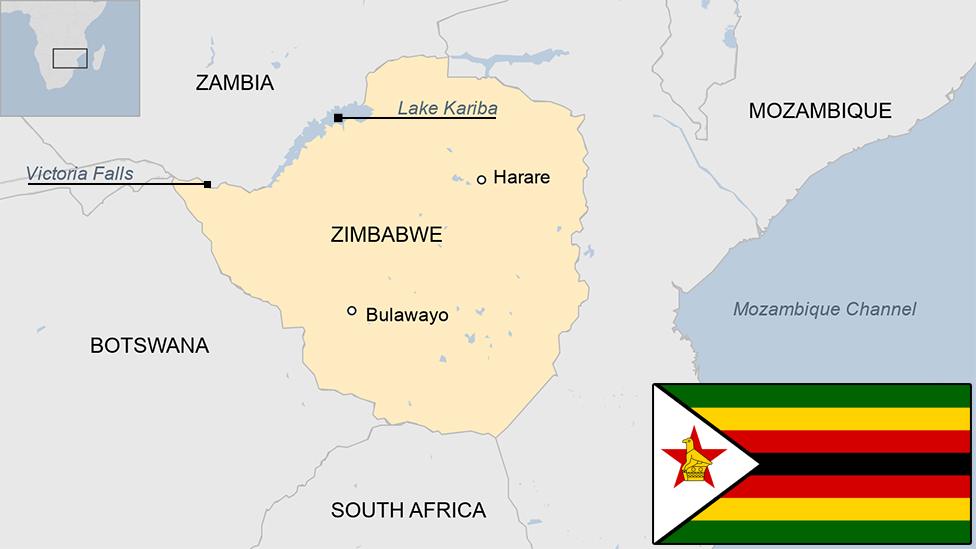
- Published25 October 2024
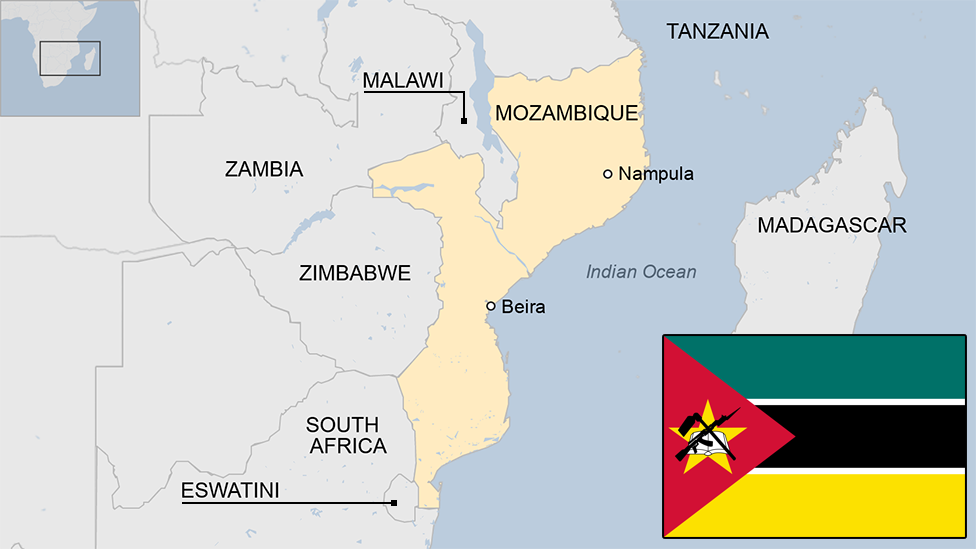
- Published9 July 2024
